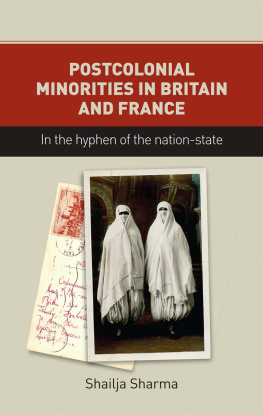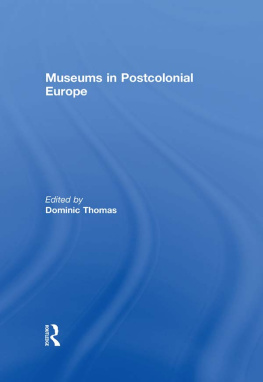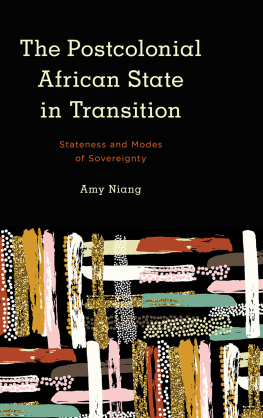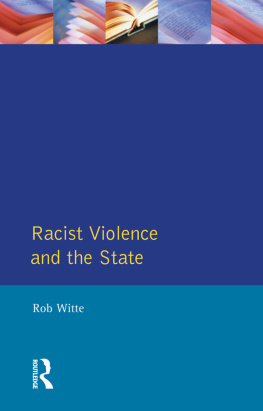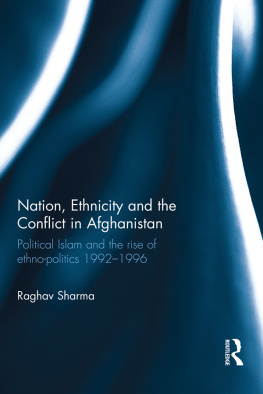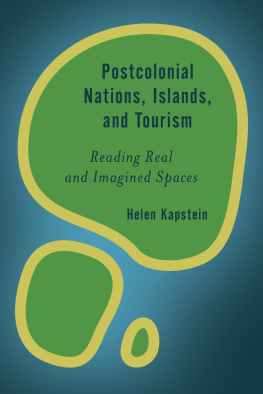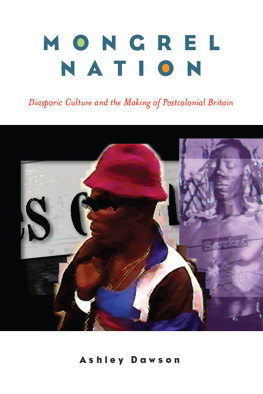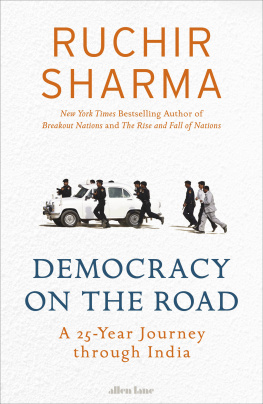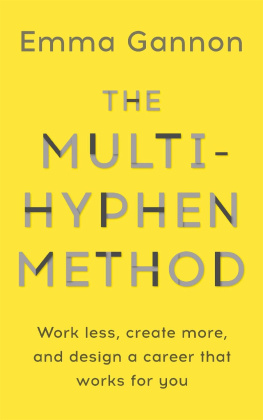Postcolonial minorities in Britain and France
Postcolonial minorities in
Britain and France
In the hyphen of the nation-state
SHAILJA SHARMA
Manchester University Press
Copyright Shailja Sharma 2016
The right of Shailja Sharma to be identified as the author of this work has been asserted by her in accordance with the Copyright, Designs and Patents Act 1988.
Published by Manchester University Press
Altrincham Street, Manchester M1 7JA
www.manchesteruniversitypress.co.uk
British Library Cataloguing-in-Publication Data
A catalogue record for this book is available from the British Library
Library of Congress Cataloging-in-Publication Data applied for
ISBN 978 1 7849 9399 3
First published 2016
The publisher has no responsibility for the persistence or accuracy of URLs for any external or thirdparty internet websites referred to in this book, and does not guarantee that any content on such websites is, or will remain, accurate or appropriate.
Typeset in 10.5/12.5 Adobe Garamond by
Servis Filmsetting Ltd, Stockport, Cheshire
One becomes a refugee if one is persecuted, expelled, and driven away from ones homeland; one becomes a minority if the political majority in the polity declares that certain groups do not belong to the supposedly homogeneous people (Seyla Benhabib, 2004. The Rights of Others: Aliens, Residents, and Citizens, p. 55. Cambridge: Cambridge University Press)
Citizenship in the nation-state is inevitably bound up with nationhood and national identity, membership of the state with membership of the nation. Debates about citizenship in France and Germany are debates about what it means to belong to the nation-state. The politics of citizenship today is first and foremost a politics of nationhood. As such, it is a politics of identity, not a politics of interest. The central question is not Who gets what? but rather who is what? (Rogers Brubaker, 1992. Citizenship and Nationhood in France and Germany, p. 182. Cambridge, MA, and London: Harvard University Press)
Contents
Many of the people who have supported this project over the years deserve much more than an acknowledgement. But an acknowledgement is a good place to begin. At DePaul University, the College of Liberal Arts and Social Sciences summer grant program and the departments of English and International Studies have been stalwart in their support. My fellow associate deans Warren Schultz and Mark Pohlad have happily left me to my scribbling in my office. Chuck Suchar and Lucy Rinehart, my bosses, have encouraged me in every conceivable way to finish. Mike McIntyre in the International Studies department has been my partner in summer writing camps to keep me going. Shiera Malik and Gil Gott have been supportive as I juggled my many responsibilities during this period. Kalyani Menon has given me much useful advice during this period, as well as kept me in Chinese food. Gita Rajan at Fairfield University has always been there when I needed her. Ajay Agrawal has always shown me that hard work does pay off.
My friends Archana Kumar at the International Monetary Fund and Madhu Dubey at the University of Illinois at Chicago have both talked me through many a crisis. Mona Narain at Texas Christian University has commiserated and comforted, while Keya Ganguly has been an inspiration to finish. Tim Brennan helped me clarify my ideas as I was struggling in the initial stages of this manuscript.
Above all, my sister, Shveta Kumaria, and my husband, Michel Hendriks, have been absolute pillars of support through these many years. Thank you for your constant belief in my ability to finish this project.
Since the mid-1980s Europe has seen deep economic and demographic changes that have upset the postwar consensus about a unified national culture and identity. Postwar migration, globalization and the expanding European Union (EU) have all led to a common-sense assumption that national has lost a consensus definition. Academic writing has explored this idea most fully through cultural studies, particularly of film and migration (Chapman, ). Xenophobic discourses have increased in politics even as many political parties have shifted to the right as a whole, both economically and socially. French parties like the UMP (Union pour un mouvement populaire), which had an absolute majority in the National Assembly from 2002 to 2012, and the RPR (Rassemblement pour la Rpublique) as well as New Labour in Britain are the most visible examples of this rightward turn.
However, primary labour immigration decreased drastically in the mid-1970s after the worldwide oil shock. Family reunification formed the bulk of migration into Western Europe in the next decade. In the 1990s, asylum seekers formed the largest group of migrants, followed by workers from Eastern Europe. Eurostat, which publishes annual statistics on the EU, estimates that, The EU-27 foreign Eurostat points out that since citizenship can change, the preferred method is to count the foreign-born as both citizens and non-citizens. Thus, these numbers include both citizens and non-citizens. Britain and France had roughly equal percentages of foreign-born people in 2011: 11.3 per cent of the French population was foreign-born, and 12.11 per cent of Britains. These numbers dont count the so-called second generation children of postwar migrants. Including them, a significantly larger proportion of the populations in France and Britain are racial, religious and, sometimes, linguistic minorities. Though legal citizenship varies over generations, the settlement patterns of minorities have defied those people who thought labour migrants would eventually return to their homelands. Moreover, although more than three generations have lived as citizens in the adopted country, often the second and subsequent generations are still not seen as part of national society, but are considered immigrants. Lastly, the perception of immigration as a problem has persisted, despite the economic benefits of immigration.
In 2008, immigrants and their descendants made up about ten per cent of the population in both countries.).
France has a more complicated method of counting minority data than Britain. The French National Institute of Statistics and Economic Studies (INSEE) defines immigrs as those either born abroad or born into another nationality (Bouvier and Borrel, , p. 11) describes Les difficults sur les chemins de lintgration rsultant des interactions entre ducation, emploi et rsidence, que ne font quaccentuer des particularits relies aux origines (the difficulties on the path to integration resulting from a combination of education, employment and housing, which cannot help but underline facts related to origins). Thus, a deficit in social and educational capital corresponds in fairly direct ways with race, religion and country of origin.
Given this complex picture of high population numbers but low levels of social mobility and employment, minorities in both countries have initiated and been the subject of debates concerning critical social concepts of secularism, the place of religion, control of womens bodies and sexuality, membership and access to the national community, the openness of a plural culture, and multiculturalism. Global events like 9/11 and the Iraq war have added to these debates as well. At a time when national debates were reaching a crisis point, as young French and British minorities fought for a fuller citizenship, they were also interpellated by these events as being a problem.


